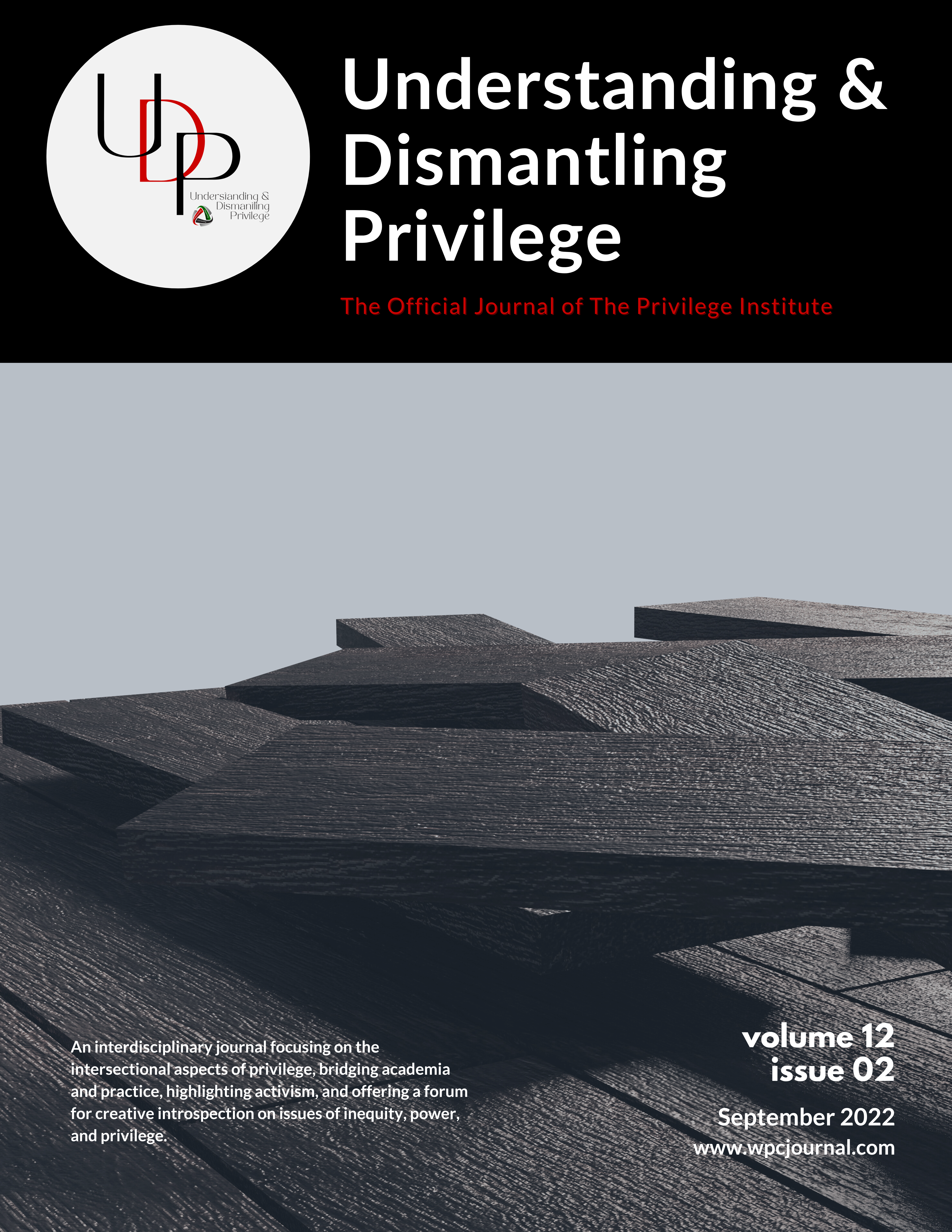Microaggressions and macro-injustices
How everyday interactions reinforce and perpetuate social systems of dominance and oppression
Keywords:
microaggressions systems injusticesAbstract
This article provides a framework that reveals microaggressions as an integral component of systems of social injustice. Microaggressions are a subset of micro-interactions, minute components of everyday interactions such as facial expressions, gestures and words. Research and theory in social cognition provides the context for why microaggressions, usually based in race, gender or sexual orientation, exert such a powerful impact on individual experiences and social behaviors. This framework illuminates why the experiences of dominant-class people who commit microaggressions are often so disparate from those of targeted-class individuals, and why microaggressions exert such power over the recipient. This article also examines the role of microaggressions in sustaining the very macro–systems of oppression and structural injustice from which they arise. This connection has been largely overlooked in scholarly analysis, in part because different scholarly disciplines use different lenses to analyze social systems, e.g., psychology privileges individuals and interpersonal interactions, while sociology focuses populations and social norms. Drawing upon multiple disciplines, this framework recognizes that a multitude of interactions between individual people leads to emergent characteristics at the population level. These characteristics in turn affect individual experience and behavior. The micro constructs the macro; the macro shapes the micro.
Published
How to Cite
Issue
Section
License
This journal is an academic publication. Its sole purpose is the dissemination of knowledge to as wide an audience as possible. The journal is free to individuals and institutions.
Copyrights for contributions published in this journal are retained by the authors, with first publication rights granted to the journal.
Copies of this journal or articles in this journal may be distributed for research or educational purposes free of charge and without permission. However commercial use of the journal or the articles contained herein is expressly prohibited without the written consent of the author.
NOTE TO AUTHORS:
A new model, the Creative Commons approach, with split copyright is rapidly evolving and worth considering.




